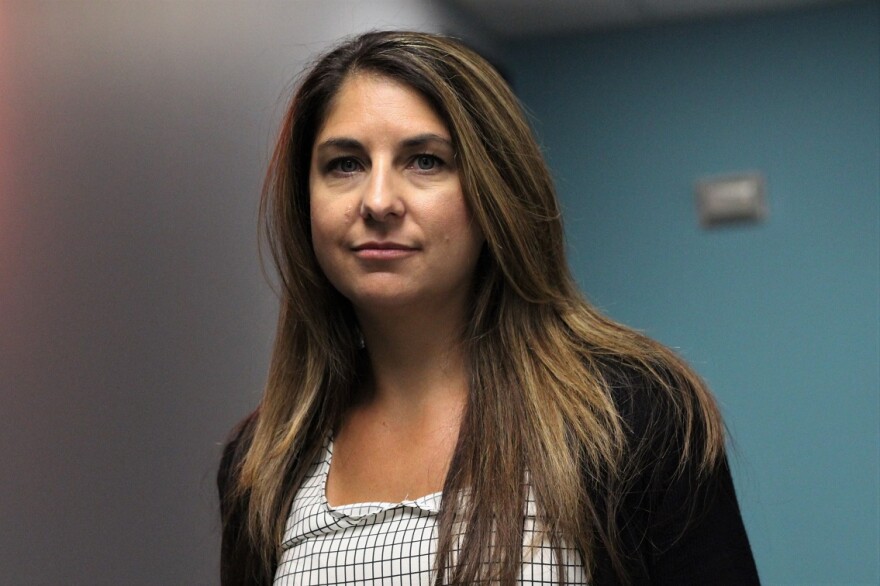Every woman who gives birth has the possibility of developing postpartum depression. That includes nearly one in seven mothers in Missouri, which ranks 11th in the nation for those who experience the condition, according to the the United Health Foundation.
In March, the Food and Drug Administration approved the first drug specifically for postpartum depression, but it's expensive and requires that mothers be away from their babies. That's problematic, says nurse midwife Jessica Cisneros.
“It can be counterintuitive to have them go stay two to three days in a hospital away from their baby, not able to breastfeed. And then there’s the financial stress on top of it,” says Cisneros, who runs a free postpartum depression support group through Saint Luke’s Hospital.
Location is a major obstacle for rural mothers, according to Cisneros. Lack of transportation, medical providers and health insurance are additional stressors that can increase the likelihood of a mother developing postpartum depression. (Data for Kansas was not available.)
“Many times they may not have any family member nearby. They’re very isolated,” Cisneros says. “They don’t have a support group.”
According to a 2010 study from the National Center for Biotechnology Information, first-time mothers with low socioeconomic status are 11 times more likely to develop postpartum depression.
Developed by Sage Therapeutics, the new drug is administered through an IV that requires the patient to stay in the hospital for at least 60 hours, or 2 1/2 days. It's a one-time procedure, and trials showed that postpartum depression symptoms were reduced for at least 30 days after the treatment.
It's not offered in every hospital; where it is offered, the inpatient procedure costs about $34,000. The company has a patient care center to help mothers with finding financial help. Many insurance companies, like UnitedHealthcare, are still in the process of reviewing the drug.
"It's pretty far down on my list (of treatments)," says Rebecca Lobell, an OB-GYN in the Saint Luke's Health System. "Where I would consider it is someone who has failed other therapies and were looking at more of an inpatient hospitalization for severe postpartum depression or psychosis."

Lobell screens all of her patients for postpartum mood disorders at several different points of the pregnancy, and up to six weeks postpartum. She says symptoms are not always visible at first.
“Honesty, I have picked up a lot of women that I would never have guessed were feeling that way,” Lobell says.
After the screening process, if the doctor deems it necessary, there are treatment options available. Cisneros' postpartum depression support group is open to anyone, not only Saint Luke’s patients, and it’s for mothers to learn to cope with their symptoms and share their experiences.
“We want to make it available,” Cisneros says. “We want to make sure those women who don’t have access to health care or don’t have childcare can come.”
Both Cisneros and Lobell agree that the best course of action when diagnosed with postpartum depression is counseling, antidepressants or a combination of both. They also recommend going straight to a medical provider if postpartum depression or other mood disorder symptoms start to occur.
“I think it’s really important that people talk about it and not shy away from it,” Cisneros says. “It’s a diagnosis of something that we can treat if people speak up about it.”
Dr. Rebecca Lobell and Jessica Cisneros spoke with Steve Kraske on a recent episode of KCUR's Up To Date. Listen to their entrire conversation here.
Emily Aiken is an intern on KCUR's Up To Date. Contact her at emilya@kcur.org or on Twitter, @em_aiken.




